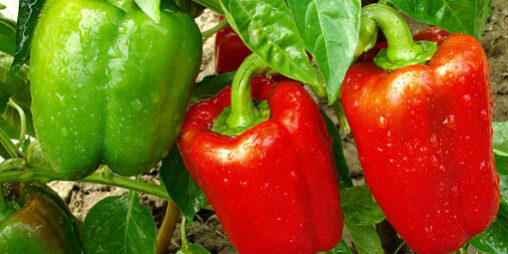Amidst a rising global trend towards health-conscious diets and sustainable agriculture, the sweet pepper, known for its vibrant hues and nutritional density, is gaining prominence in the market.
Market Trend Shifts
By August 2022, the cultivation area for sweet peppers in China has seen a notable expansion compared to the prior year, with an approximate 15% increase in yield. This uptick is largely due to advancements in farming techniques and a more precise reading of market demands by growers. However, an extended rainy period has negatively impacted growth in certain regions, causing fluctuations in supply. Consequently, the market price for sweet peppers has experienced a modest decline, with the average wholesale rate falling to between RMB 7 to 9 per kilogram, marking a decrease of about 5% year-over-year.
The Win-Win Strategy of Ecological Cultivation
In response to these market dynamics, an increasing number of farmers and enterprises are embracing ecological cultivation practices. These methods not only contribute to environmental conservation by minimizing the use of chemical fertilizers and pesticides but also enhance the quality and flavor profile of the sweet pepper, aligning with the market’s demand for healthful produce. Ecologically cultivated sweet peppers often fetch a premium in the market, thereby boosting farmers’ revenues.
Future Outlook
Looking to the future, while the sweet pepper market is subject to seasonal variations, the proliferation of green cultivation practices and a growing consumer preference for healthful foods are anticipated to usher in new growth prospects for the sector. With supportive government policies and strategic market promotion by businesses, ecological cultivation is set to become a mutually beneficial strategy that bolsters the market competitiveness of sweet peppers and advances the cause of sustainable agriculture in China and beyond.
In conclusion, the intersection of market trends and ecological cultivation presents a fresh set of growth opportunities for both farmers and businesses. By adopting a win-win strategy of ecological cultivation, not only is the market value of the product enhanced, but the sustainability of the agricultural environment is also promoted.





